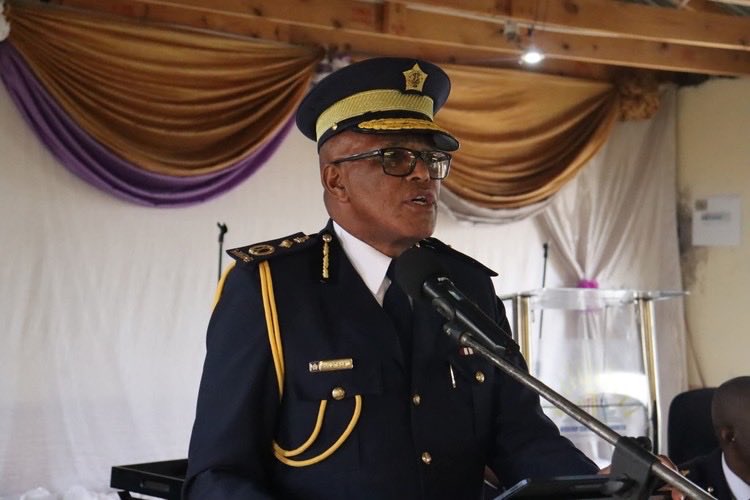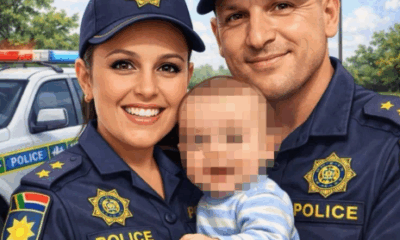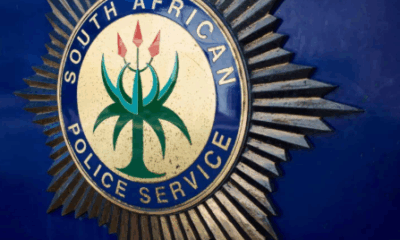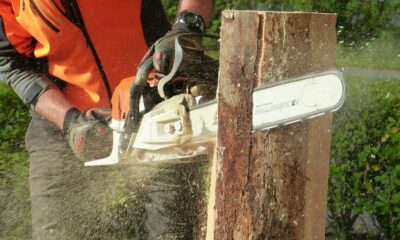News
Military Camps or Misinformation? SAPS Says No Evidence of Basotho Militants Training in SA

Tensions simmer between Lesotho and South Africa amid claims of militant training camps. But SA police say the evidence just isn’t there.
In a climate of deepening political rhetoric and rising historical resentment, a dramatic cross-border claim has gripped headlines: Lesotho officials insist that Basotho nationals are undergoing military-style training on South African soil to prepare for a land reclamation campaign.
But South Africa’s top police authority is pushing back, saying their boots-on-the-ground investigations have turned up nothing.
So, where does the truth lie in this complex story rooted in colonial history, modern politics, and online rumor?
The Claim: Basotho Militants Training on SA Farms
It started with a bold allegation from Lesotho’s police commissioner, Advocate Borotho Matsoso. Speaking on Newzroom Afrika, Matsoso claimed that a group calling themselves Malata Naha (Land Reclaimers) has been mobilizing within South Africa, specifically, training in secretive military-style camps on local farms.
He warned that this shadowy group included Basotho nationals of varying ages, allegedly preparing for a serious campaign to reclaim parts of South Africa they believe were “stolen” from the Kingdom of Lesotho.
According to the claim, the land in question includes large swathes of the Free State, Eastern Cape, Northern Cape, Mpumalanga and KwaZulu-Natal, territories Lesotho lost over a century ago during colonial conquests and political negotiations.
Matsoso expressed concern that this militant buildup could threaten peace in the region, with South Africans allegedly among the recruits.
SAPS Responds: “No Camps Found”
Lieutenant General Tebello Mosikili of the South African Police Service responded swiftly, stating that SAPS had taken the allegations seriously and launched investigations. Officers were deployed, bilateral engagements with Lesotho were activated, and intelligence units swept through the provinces.
The result? Nothing.
“To date, we have not established any military-style training happening in South Africa,” Mosikili confirmed in a televised statement.
She also urged South Africans to come forward with any information should they witness suspicious activities. “We remain alert, but as of now, there is no proof to back the claims made by Lesotho’s police commissioner,” she added.
A History of Tension and a Fringe Movement
At the heart of this story lies a centuries-old grievance. The idea of reclaiming “lost” land has long stirred political emotion in Lesotho, but it’s typically been confined to fringe groups.
One of the most vocal figures behind the modern movement is Dr. Tshepo Lipholo, a Lesotho MP and leader of the Basotho Covenant Movement. Earlier this year, Lipholo made headlines when he submitted a controversial land claim to the United Nations, demanding the return of South African territory to Lesotho.
Lipholo was later arrested in Lesotho and charged with sedition, incitement, and even undermining the royal family after allegedly declaring himself the “Paramount Chief of Basotholand.” Audio recordings reportedly show him encouraging Basotho youth to take up arms.
Lesotho’s own government distanced itself from Lipholo’s actions, saying the UN submission was not sanctioned. Nonetheless, his rhetoric has gained traction on social media, where romanticized visions of a “reunified” Basotholand are increasingly shared.
Online Hype Meets Ground Reality
While social media can amplify nationalist movements, the gap between fiery online posts and reality on the ground is often wide.
In this case, SAPS has not only denied the existence of camps, but also stated it continues to monitor for any potential security threats. Lesotho, meanwhile, stands by its claim, leaving an uncomfortable diplomatic tension between the two nations.
Some observers argue this might be political theatre meant to stoke domestic support in Lesotho, while others believe it’s a sign of bubbling regional dissatisfaction that needs real political attention, not arrests and denials.
Why It Matters: The Bigger Picture
This issue is about more than alleged camps or fringe activists. It touches on:
-
Post-colonial boundaries and the unresolved pain of artificially drawn borders.
-
Social media radicalization in politically volatile regions.
-
The fragility of Southern African diplomacy in the face of misinformation and political extremism.
For now, the SAPS and Lesotho’s police leadership are telling vastly different stories. Until proof emerges either way, the public is caught between historical grievance and current-day instability.
As one Twitter user put it:
“Land issues in southern Africa aren’t just history lessons, they’re ticking time bombs.”
Whether this is much ado about nothing or the spark of something more serious, only time and continued investigation, will tell.
But one thing is certain: the ghosts of colonial boundaries are far from laid to rest.
{Source: IOL}
Follow Joburg ETC on Facebook, Twitter , TikTok and Instagram
For more News in Johannesburg, visit joburgetc.com



























